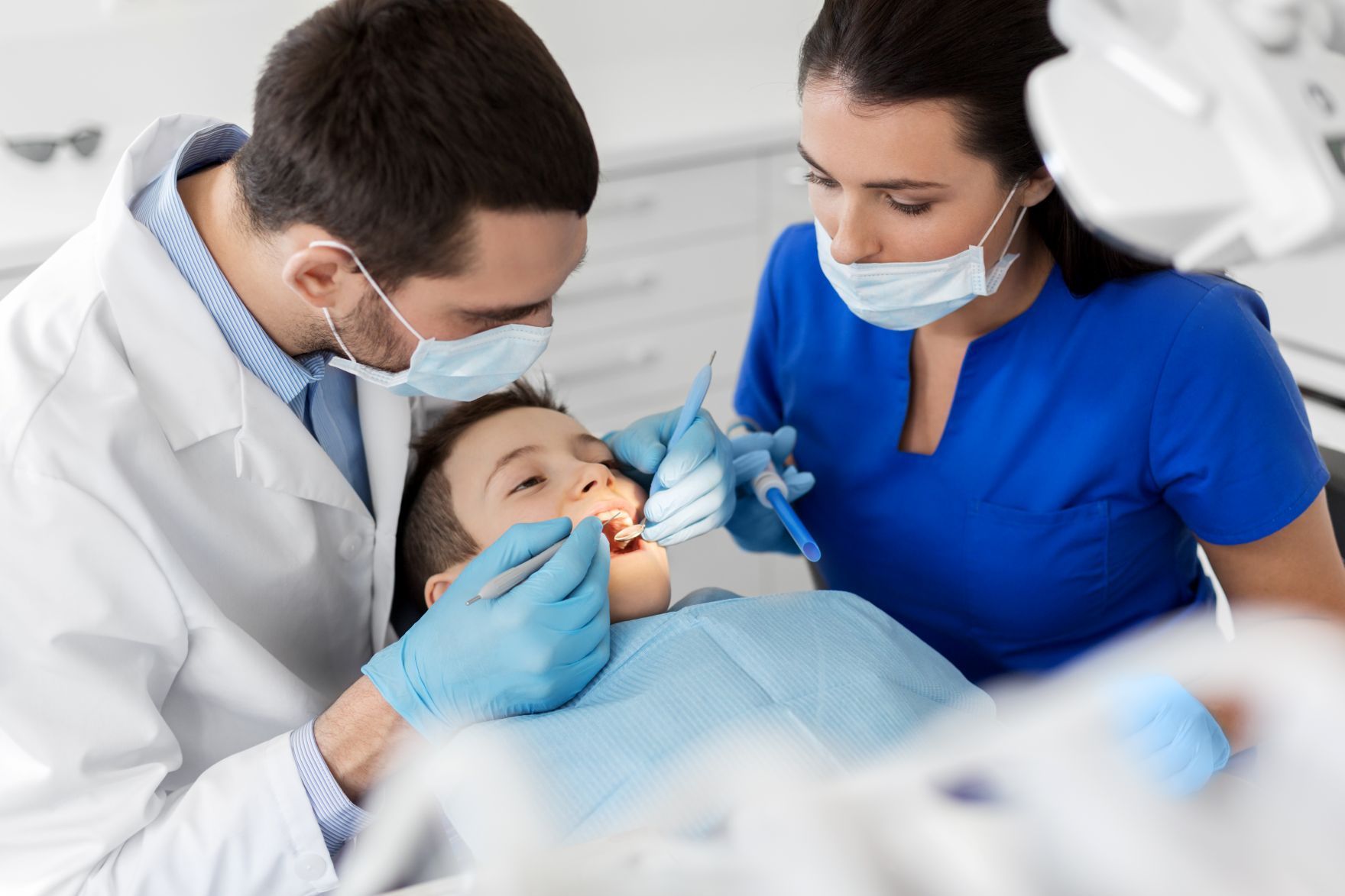Dealing With Kids’ Dental Emergencies

A parent’s guide to handling children dental emergencies
No parent wants to face the heartache of seeing their child in pain, especially when it comes to sudden dental emergencies. Whether it’s the result of a fall, sports injury, biting down too hard, or an undiagnosed cavity that flares up without warning, pediatric dental issues can strike at any time. Our pediatric dental practices in High Point, Fayetteville, and Lumberton are committed to equipping parents with the confidence and knowledge to act swiftly and calmly when the unexpected strikes.
In this post, we’ll walk you through the most common dental emergencies we treat in kids, what to do in each scenario, and how to reduce the chances of emergencies happening in the first place.
What Counts as a Dental Emergency - and Why Acting Fast Matters
A
pediatric dental emergency involves any oral health issue that needs immediate attention to:
- Stop pain
- Prevent infection
- Save teeth
- Avoid long-term damage to developing permanent teeth
Issues like infections or severe toothaches can escalate quickly, impacting more than just a child’s smile. So, when in doubt,
contact us right away!
Common Pediatric Dental Emergencies & What You Can Do
Accidents and sudden discomfort can take both parents and kids by surprise. Knowing what to look for and what to do can turn these stressful moments into manageable ones.
1. Knocked-Out Permanent Tooth (Avulsion)
Few things are as alarming as seeing your child lose a tooth due to a fall or sports injury. If it’s a permanent tooth, every minute counts. Acting fast may mean the difference between saving the tooth or losing it permanently.
- Locate the tooth. Touch it by the crown only.
- Rinse gently with milk or saline; avoid rubbing it.
- Try to reinsert it into the socket; if that’s not possible, store it in milk or saliva - not plain water.
- Get to the dentist within 30 minutes for the best chance to save the tooth.
If it's a
baby tooth, do not reinsert it, as this could damage the underlying permanent tooth.
2. Fractured or Chipped Teeth
A chipped or broken tooth might seem minor, but even small cracks can expose sensitive nerves or lead to infection. Quick action can minimize pain, preserve the tooth, and often allow
your pediatric dentist to restore it beautifully.
- Rinse the mouth with warm water and, if possible, locate any broken tooth fragments.
- Apply gentle pressure with clean gauze to stop bleeding.
- Collect any fragments in case they can be reattached, and schedule a visit quickly.
3. Sudden Toothache
Toothaches may creep up slowly or strike suddenly. Because children can’t always describe the source of pain clearly, it’s important for parents to know the signs and provide quick relief until a dental exam can uncover the root cause.
- Rinse the mouth with warm saltwater and remove any debris with floss.
- Apply a cold compress to reduce swelling.
- These symptoms could indicate deeper issues like cavities or infections; professional assessment is essential.
4. Abscesses or Infections
Swelling, pus, fever, or even just persistent discomfort could be signs of a dangerous infection. Dental abscesses require urgent attention because they can spread quickly and become serious health threats if untreated.
5. Soft-Tissue Injuries (Lips, Tongue, Gums)
Kids are active and often bump, bite, or cut the soft tissues of their mouth. While many of these injuries look scarier than they are, knowing how to stop the bleeding and when to seek help is crucial to avoid unnecessary panic.
- Gently clean the area with water.
- Apply pressure using gauze to stop any bleeding.
- If bleeding persists or the cut is deep, any more than minor discomfort or swelling, seek immediate dental or medical care.
Your Go-To Emergency Response Kit
Being prepared can ease stress and improve outcomes. A well-stocked kit should include:
- Clean gauze or cloths
- A small container (seal-tight) for knocked-out teeth
- Child-appropriate pain relief (e.g., acetaminophen, ibuprofen)
- Cold compress packs
- Your pediatric dentist’s contact info
Preventative Measures: Less Emergency, More Peace of Mind
While accidents happen, many emergencies are avoidable with smart prevention:
- Mouthguards during sports and active play can prevent traumatic dental injuries.
- Regular oral hygiene reduces the risk of cavities and infections.
- Limiting sugary and acidic snacks/drinks.
- Favoring tooth-friendly foods rich in calcium and vitamins.
- Routine dental checkups (every six months) help catch small problems before they escalate.
Why Parents in High Point, Fayetteville & Lumberton Trust Us
At our pediatric practices, your child’s safety and comfort are our top priorities. Whether in High Point, Fayetteville, or Lumberton, we're here to provide friendly and experienced care for dental concerns big or small. Learn how to
schedule your first visit online today.











